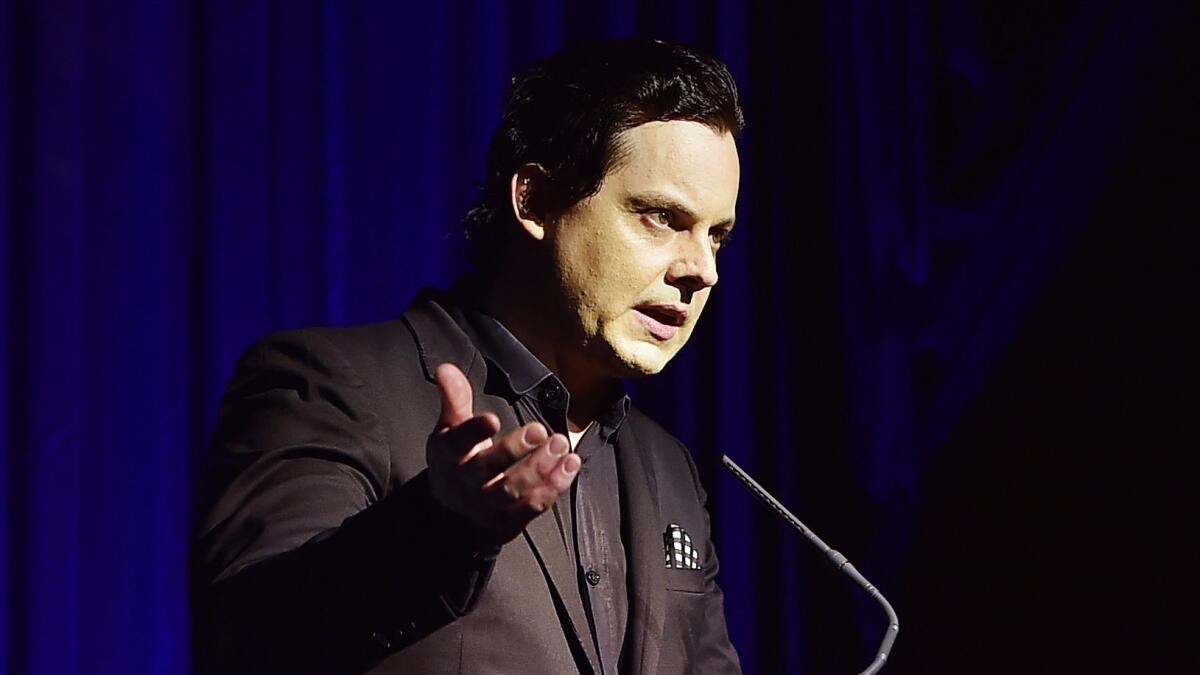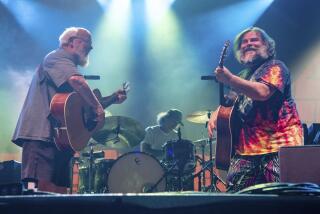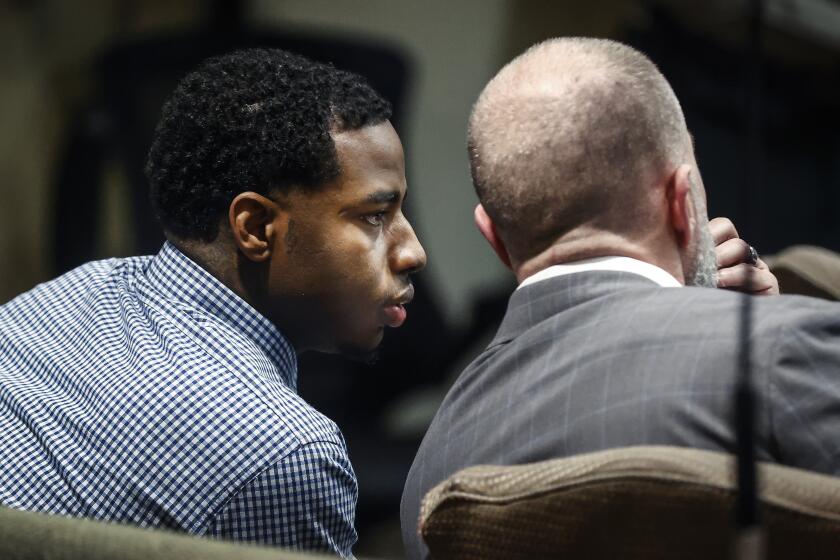Jack White jokes about Kellyanne Conway and tells White Stripes tales while accepting Grammy honors

On Wednesday night, dressed in all black, his hair slicked back, rock guitarist, singer, label chief, producer and former professional upholsterer Jack White approached the microphone onstage at the Village Studios in West Los Angeles a little warily.
“I had a speech prepared by Kellyanne Conway and Bob Lefsetz, but I dropped it in the car on the way here so I’m just going to wing it,” joked White, referencing one of President Trump’s advisors and a polarizing music blogger.
White was being honored by the Recording Academy’s Producers & Engineers Wing, which each year for the last decade during Grammy week celebrates an artist’s work behind the boards. The party gathers a few thousand of the best ears in the world: studio workers whose energy away from the limelight fuels both music and the music business.
White was more prepared than he let on, even if he seemed like less of a superhero without his guitar. Through a brief series of remarks about his history as a producer and engineer, the former White Stripes member lovingly spoke about the lightning-in-a-bottle thrill of making records.
White recalled his first bedroom set-up — a four-track reel-to-reel recorder and a cheap mixing board — and how his older brother Joe had showed him engineering techniques, “which at that time consisted of bass and treble,” White said.
He continued: “But in that bedroom I learned a lot about how to do things under restriction. Do things on a four-track and bounce back and forth. Record something and erase it if it wasn’t good enough. You erase it and it’s gone forever — which is something I think that has become few and far between in the new generation. You record a million times and just keep all of it.”
I also believe personally that you let the music tell you what to do. You don’t tell the music what to do. It’s not an ego trip. You’re not in control.
— Jack White
Despite his success, White stressed that he still worked that way: “That kind of restriction, I think, is really important.”
After thanking Les Paul, the guitarist and inventor of double-tracked recording, White recalled an early White Stripes session with drummer Meg White.
They were recording “Death Letter” by Son House in Jack’s living room when he noticed something amiss.
“We were playing for a minute and Meg stops and has this fear of God look in her face,” he said. “Her face is completely frozen and I’m still playing. I don’t understand what’s going on.
“And I said, ‘What? Why are you stopping?’” The drummer was silent.
“I turned around and there was a 300-pound drunk man standing behind me in the living room who had just been walking down the street and walked in,” White said.
“When you record under that kind of duress in Detroit, you really learn a lot about constriction.”
White cited Michael Jackson’s belief that “it’s not your antenna” that generates music, but, rather, “It’s all about letting God in the room.”
He added: “And I also believe personally that you let the music tell you what to do. You don’t tell the music what to do. It’s not an ego trip. You’re not in control. You sit there and you set up a scenario, and the music tells you what your actions should be — especially when you’re helping other people.”
White thanked the producer Don Gallucci for his work on proto-punk band the Stooges’ “Fun House” and the Kingsmen’s “Louie Louie.” Perhaps most surprisingly, White acknowledged the late crooner Bing Crosby.
“Bing Crosby took money out of his own wallet and contributed to the production of making analog tape machines to progress this entire industry forward,” White said.
“And that’s about building bridges and turning out for the next generation. I think we should build bridges instead of walls, especially right now.”
For tips, records, snapshots and stories on Los Angeles music culture, follow Randall Roberts on Twitter and Instagram: @liledit. Email: randall.roberts@latimes.com.
ALSO
Fleetwood Mac’s Christine McVie and Lindsey Buckingham talk about making their first duet album
More to Read
The biggest entertainment stories
Get our big stories about Hollywood, film, television, music, arts, culture and more right in your inbox as soon as they publish.
You may occasionally receive promotional content from the Los Angeles Times.











